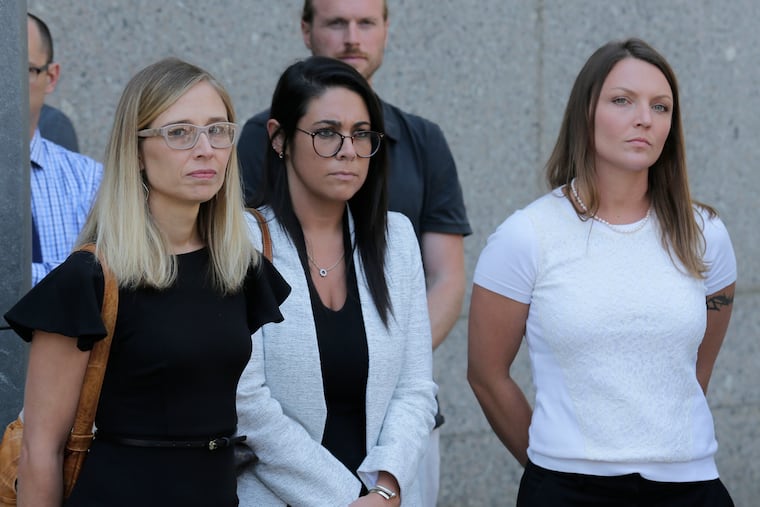Jeffrey Epstein’s victims will never have their Larry Nassar moment now | Perspective
The death of accused sex trafficker Jeffrey Epstein deprives his victims from having closure after a traumatic experience.

I was about to leave the house on Saturday morning when I took one last look at Twitter — always a dangerous move — and saw that Jeffrey Epstein, the notorious financier who was awaiting trial on sex trafficking charges in federal prison, had died by apparent suicide.
I had been walking out, but once I saw the news, I sat down and read the words again, in tears. As a rape survivor, I felt such rage and sadness that Epstein’s alleged victims — there are at least several dozen, but possibly more than 100 — would never see him held accountable for his crimes.
Some might say his death was the ultimate accountability. But I don’t think so. It was a decision he made himself. His victims had been too young and disempowered to have agency; by taking his own life, Epstein demonstrated he was still in control — not just of his own life, but of some aspect of their lives, too.
The women will never have their Larry Nassar moment now. Epstein’s victims will never see their tormentor get justice, as the gymnasts who were abused by Nassar did when the world-renowned coach was sentenced to 40 to 175 years in prison for sexually abusing 150 women and girls.
Surely, there were many who were gearing up for battle, preparing themselves for the years it might take for his case to work its way through the justice system. They were probably deciding how much or how little to tell and whether to show up in court or talk to the press. They were surely worried about the way that the cultural pendulum swings so quickly from admiration to opprobrium, depending on a given day’s spin. They were possibly anticipating having their privacy invaded and trying to figure out how they would handle that. But at least he’d be punished, at least he would suffer, in prison, the same powerlessness they once felt.
Then all of a sudden, he was gone. No punishment. No suffering. No justice. And what are they supposed to do with their rage? Their pain?
I am projecting, I know.
Many years ago, I went back to the Dominican Republic where I was raped. I wanted to confront my rapist. It was one of the hardest things I’ve ever done. Even thinking about it now, I get short of breath. As soon as I got off the airplane, I knew I was not OK. But I didn’t go home. I kept moving.
When I got to his family home and learned he was not in the Dominican Republic, actually, but in the U.S., in the Bronx, I was devastated. Yes, I could go to the Bronx, and I did — a story for another time. But the point was: It took so much to get there, to the country where so much of my life had unraveled, to the town where IT happened, to the street where he’d lived, to the house where he’d taken everything away from me.
And there I’d stood, sweating and dizzy and exhausted, terrified to knock on the door because I thought I might die if they opened it, get sucked into a different dimension, like some early-aughts version of Stranger Things. But I did it anyway. I knocked. And he wasn’t there.
There were a number of idiomatic phrases I came to understand more intimately that day — the rug pulled out from under me, the earth moving beneath my feet. The foundation of assumptions I’d been standing on was gone.
And now, I can’t help thinking of Epstein’s victims in front of that door, too, the long line of them snaking down the palm-tree-lined street, standing in the vicious heat of a really bright day, and they’re knocking and knocking and knocking. And no one is ever going to answer.
Liz Spikol is a writer and editor who lives in Philadelphia.